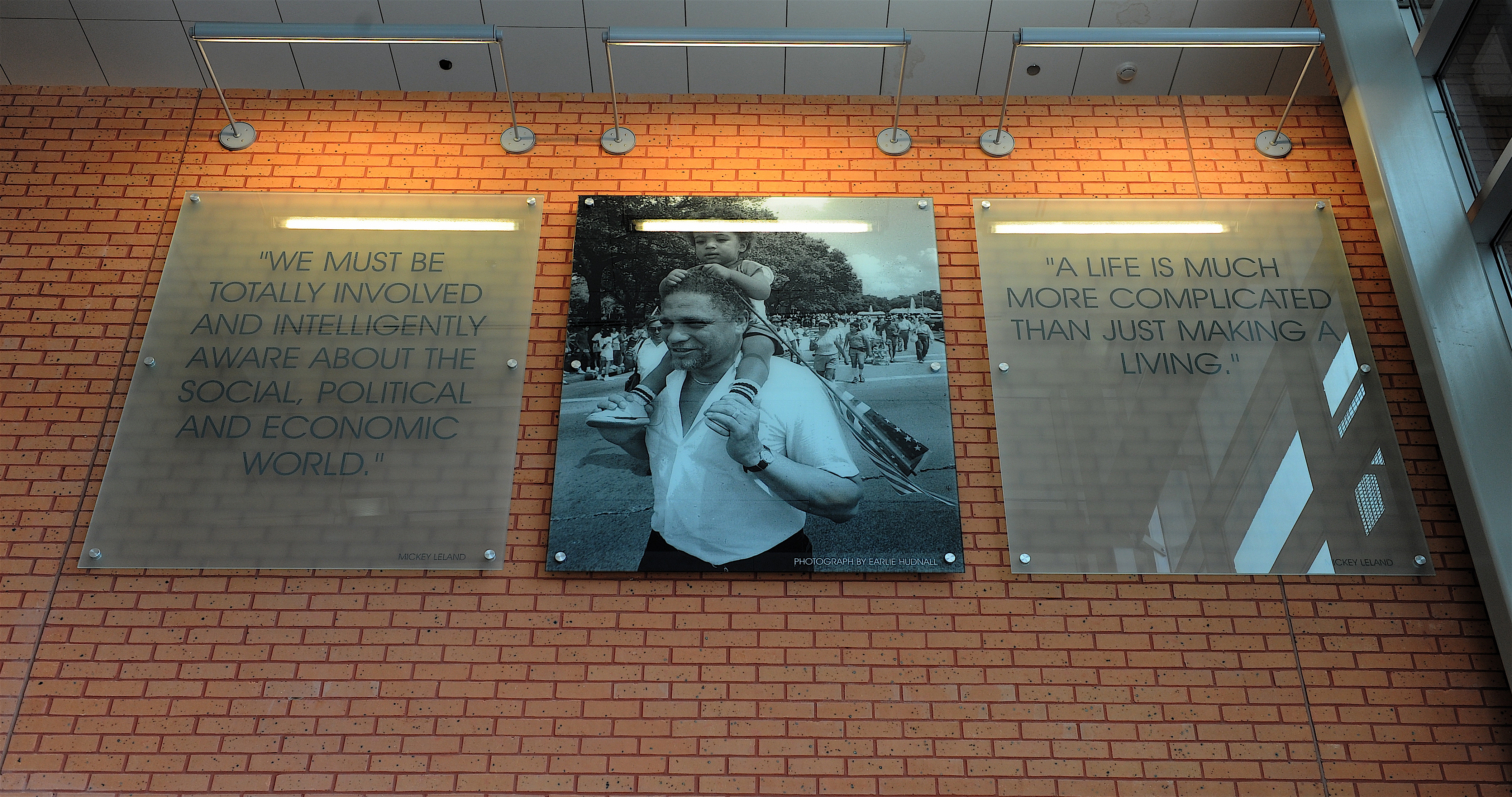
Mickey Leland
The Mickey Leland Center on Hunger, Poverty, and World Peace at Texas Southern University administers the unpublished papers, audio visual material, artifacts and library of the late U.S. Congressman George Thomas “Mickey” Leland. The collection is stored at the Barbara Jordan / Mickey Leland School of Public Affairs and includes the legislative work, correspondence, newspaper clippings, pictures, audio visual material, library and personal items of Congressman Mickey Leland. The materials in the collection date from the early 1970’s to 2015. Much of the collection concentrates on Mickey Leland’s political career from 1970 to 1989.
Alison Leland, the widow of the late Congressman donated his congressional papers and collection to Texas Southern University in 1989. The Mickey Leland Archives and Collection are a part of the Archives Collection of the 18th Congressional District of Houston, Texas, located at Texas Southern University. Congressional papers at the University also include those of former Congresswoman Barbara Jordan, who preceded Mickey Leland in representing the 18th Congressional District in Congress. The Leland’s Papers expand the University’s acquisition, access, and preservation program and constitute a major collection in the Southwest.
The Leland Archives and Collection span the turbulent years from Nixon, Vietnam, and Watergate; through Reagan and Reaganomics; to Bush and the Recession. They reveal the evolution of Leland’s political philosophy and career, from his youthful black militant protests, when he arrived in Austin as a freshman legislator dressed in an African Dashiki, to his arrival on the Washington scene sporting a Giorgio Armani suit. His papers document Leland’s public service career from 1970 to 1989 and provide a political perspective on the history and culture of Houston, its 88th State District, and the 18th U.S. Congressional District during those years.
The collection reveals Leland’s uncanny ability to make a difference and get beyond words to solve the problems of hunger, poverty, injustice and suffering.
The Leland Archives cover a variety of topics including health care rights for the poor, prison reform, police harassment and brutality, racial discrimination, affirmative action, budget discrimination in higher education, labor legislation, political election organization, infant mortality, minority rights in business, health education, parks and recreation for the indigent, apartheid and racial discrimination issues worldwide, third world development, emergency shelters for the homeless, nutrients for the malnourished, and food security for victims of hunger.
For Leland’s constituents, the archives document especially well his involvement in issues and projects of particular concern to the people he represented. The diverse conditions existing in the 18th Congressional District required Leland’s extraordinary flexibility. He managed issues ranging from mass transportation, urban planning and neighborhood protection to energy legislation and domestic oil production.
The collection verifies Leland’s role as a champion of minority issues and a promoter of the economic development. He focused on trade issues for state products with the Pacific Rim countries and developed special projects such as Houston’s Economic Conference.
In 2015, the Finding Aid for the archives has been completely restored and is now available online and is searchable through the Digital Scholarship web site. Additionally, a significant sample of the newly digitized papers, images, audio and videos from the archives are now available online.
Access to the archives and research requests are by appointment.
Contact the archive staff or Melissa Davy at melissa.davy@tsu.edu AND archivesmlc@tsu.edu / 713-313-7451.
The Mickey Leland Archives are located in suite 105 on the first floor of the School of Public Affairs.
The archives can be accessed through our Digital Scholarship site: https://digitalscholarship.tsu.edu/mla/

